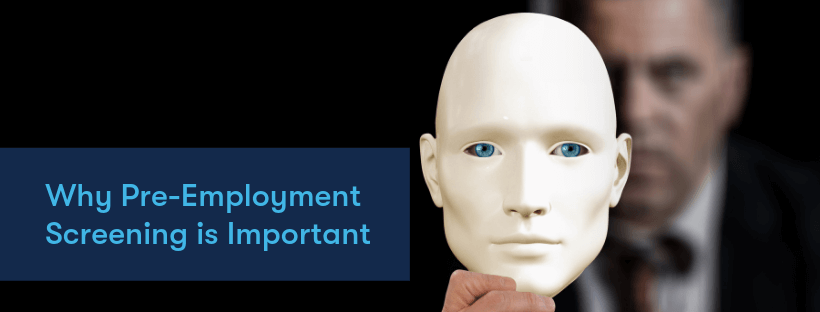Artificial Intelligence (AI) has been around for several years now. Since 1956, engineers and scientists have been trying to replicate the human intelligent behaviour and reasoning on a digital level, starting with tasks like playing chess or mapping streets, and recently evolving to more complex actions, like language processing. With this constant evolution, AI is becoming one of the fastest-growing sectors of investment in the world. According to Gartner, AI business value is projected to reach $1.2 trillion in 2019.
Following this growth, AI is also gaining ground in the recruitment field. HR departments have their hands full when it comes to recruitment functions. From screening CV’s to scheduling interviews and managing the large number of applicants they receive, hiring managers and recruiters can sometimes be overwhelmed with these tasks, which can lead to delays in recruitment processes and more biased decisions. With the introduction of AI in recruitment, some of these tasks, like candidate screening, can be improved and streamlined.
But the question is: is AI going to replace the work of recruiters?
This is a common misconception that some HR professionals still have when it comes to the implementation of Artificial Intelligence in recruitment processes. However, a large number of professionals are already embracing AI and its benefits. According to a recent survey by Korn Ferry, talent acquisition professionals are welcoming AI as a tool. Nearly 48% say big data and AI are making their roles easier, with 40 % saying it helps in providing valuable insights and 27% stating it has freed up their time.
Even though AI can automate some of the tasks traditionally performed by recruiters, it is meant to be used as a tool to help and reduce the time spent on routine tasks, and not as a replacement for human work. It can speed up the recruitment process and save recruiters precious time, that can be used in more important tasks, like interviewing and engaging with candidates.
Filtering the Best Candidates
One of the most arduous tasks that hiring managers have in hands is going through all the received applications. Most of the times this work is done manually, which can lead to inaccurate assessments, misreadings and unconscious bias. As humans, we are affected by emotions and tiredness, which can have an impact on the way we evaluate skills and people, leading to unfair decisions. Besides that, all this manual work takes recruiters long hours of their days, sometimes delaying the recruitment processes due to overwhelming amounts of applications.
AI systems are now able to do the first screening of job applications based on the analysis of job descriptions and requirements, screening and selecting the ones that fit best with the job description.
How is this Pre-Screening Done?
Pre-screening of candidates is typically a machine learning problem, meaning that the pre-screening algorithm will learn how to classify a candidate to a job using a dataset of historical data on candidates and jobs, labeled with the decisions made by human experts in these past cases. Then, if past human decisions were biased, the machine learning algorithm will also be biased.
Therefore, extra care must be employed to avoid or remove this bias. For instance, at skeeled, we pursue a responsible AI program consisting of different anti-bias techniques used at different levels. We have a diverse team of human experts with specific anti-bias formation, which gives us a strong guarantee that new training data is unbiased. In the same way, we periodically monitor and review the AI-based pre-screening outputs for fairness and make corrections if needed. Finally, we do not use any demographic information in the training dataset, and we denoise all titles and experiences that could be used to denote any case of bias.
This automated process saves recruiters time and helps their decision making in an unbiased way. Moreover, this automated filtering process helps recruiters reach top talent faster than ever, which is really important considering that top talent only stays in the market for a short period of time.
Improving Employer Branding
As we mentioned previously, by allowing AI to do the first screening, recruiters are promoting more unbiased decisions. This results in a more diverse environment for the company and a more attractive employer brand, which will improve the chances of attracting top candidates that fit perfectly with the company’s culture. The quality of candidates can also save time in the recruitment process. By having a large number of suitable candidates from the beginning, recruiters can make their decisions faster and speed up the hiring of the perfect candidates. Even if they are not able to hire all the best candidates at once, they will become part of the company’s talent pool, allowing for recruiters to easily reach out to them if an opportunity arises in the future.
A Positive Outlook
AI is changing the face of recruitment, quickly becoming an essential tool to improve recruiter’s productivity and a great help in decision-making processes. All of these benefits will have a positive impact on the way recruiters work, giving them more time to engage with the candidates, which will also improve the candidate experience, boosting the company’s employer branding.
To learn more about AI in Recruitment, watch our latest Webinar!

Skeeled offers you the perfect opportunity to bring innovation and digitalisation to your hiring. Check our website or our LinkedIn, Twitter and Facebook pages for further information.
Thanks for reading and see you next time!
Your team here at skeeled




